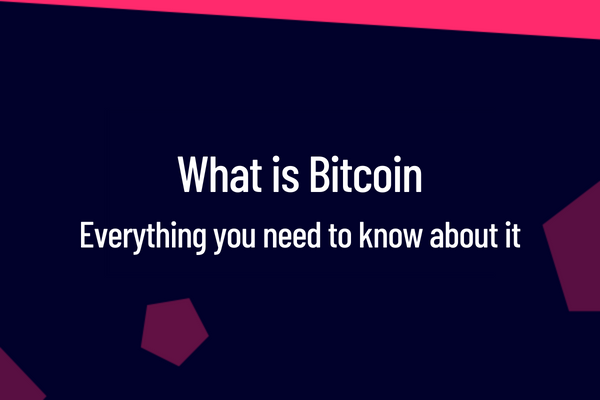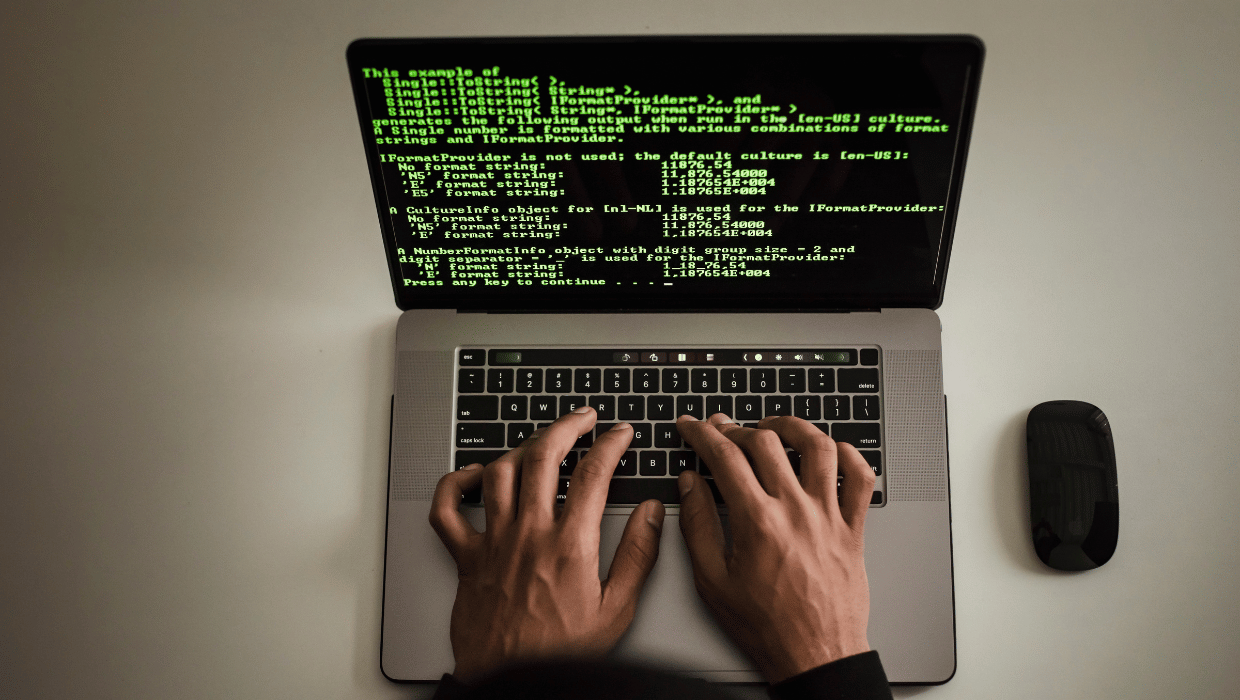Here is what you need to know about it
In the past couple of years, there was not a week when Bitcoin didn’t make headlines. So why is Bitcoin so much popular, and why should you care?
Many say it’s seen as the future of finance, and it can have a dangerous impact on the money you have in your pocket. It’s not certain how much it will have influence, but one thing is sure, despite the rises and falls in value, Bitcoin is a long-term fixture in the news cycle.
How does it work?
While it’s always represented as an actual coin, Bitcoin is in fact a virtual currency, or rather cryptocurrency, that has no connections to the bank or government and allows its users to spend money completely anonymously.
The coins are created by the “miners” who mine them by lending computing power to confirm other users’ transactions that use blockchain technology. In exchange, they receive tokens. The coins can also be bought and sold on exchanges with US dollars and other currencies, simply the money we use every day.
A number of financial institutions allow Bitcoin in their client’s portfolios, and some businesses take it as payment, but mainstream acceptance is still limited.
Bitcoins are basically lines of code that are signed, digitally, each time they change their owners. Transactions can be anonymous, as we mentioned above and tokens are easier to move across borders, which makes the currency popular with libertarians, tech enthusiasts, and sadly, even with criminals.
Coins have to be stored in a digital wallet, either online or offline. Storing coins online can be done through an exchange, such as Coinbase, and offline with a hard drive with special software.
Bitcoin network holds a continuous lottery where all the mining tools around the world race to be the first to solve a math problem. Every 10 or so minutes, a winner is found and is awarded 6.25 tokens. But that is for this period, until the next Bitcoin halving.
How was Bitcoin created?
We can’t precisely tell how Bitcoin was created, because, on one hand, it’s a complete mystery. It was launched in 2009 by a group of people, or a person, operating under the name of Satoshi Nakamoto, and then it was adopted by a small group of enthusiasts.
Soon after, Satoshi Nakamoto was out of the picture as Bitcoin began to attract global attention. But advocates say that it doesn’t matter because the currency follows its own logic.
Bitcoin users
Anyone can buy, sell and use Bitcoin through cryptocurrency exchange apps and platforms. However, if you don’t have, let’s say, around tens of thousands of euros right now, it’s very unlikely you’ll be able to afford to buy even one token.
But, no worries, you could buy a share. A small value of Bitcoin exists, and it’s called Satoshi after the creator of crypto. One Satoshi is worth 0.00000001 Bitcoin.
Bitcoin has become popular enough that more than 300.000 transactions typically occur in one day, according to the Bitcoin wallet site. However, compared with cash and credit cards, their popularity is still low.
If you choose to buy and store bitcoin outside of an online exchange, here are some tips and tricks on how to do it.
Each person that joins the Bitcoin network is given a public key, which is a long string of numbers and letters. When you buy or receive a token, you get a public key that unlocks a virtual vault, giving you access to your money.
Anyone can send you a bitcoin via your public key, however, only the holder of the private key can access the bitcoin in that virtual vault.
Why is Bitcoin not more widely used?
There has been a lot of skepticism around Bitcoin because of its decentralized and unregulated environment. Tracking its price is a lot easier than trying to figure out its value, which is why so many institutions, traders, and experts are doubtful about cryptocurrencies.
Cryptocurrencies are designed to replace our paper money, but it hasn’t come to that just yet. While some financial services companies and banks are getting right on it, others are keeping their distance.
The cryptocurrency market has been very sensitive to extreme instability, with people such as Elon Musk using Twitter to influence crypto values.
How to use it?
There is a funny story from 2013 when a Bitcoin fan named Laszlo Hanyecz created a message-board post offering to anyone who would deliver two pizzas to his home in Jacksonville, 10000 BTC which was then around 25$. Those two pizzas were marked as the first successful purchase of non-virtual goods using bitcoin.
Using it is pretty simple. Transactions aren’t any different from those using a debit or credit card, but instead of being asked to enter your card info, you will simply be entering the payment amount, and the vendor’s public key (something like email address), via a wallet app.
One of the benefits of paying with bitcoin is that it limits the amount of personal information you need to provide. If you are purchasing physical goods that need to be shipped, only then do you have to share your name and address.
What you should do with your Bitcoin is completely up to you. You can sell it for cash using an exchange or a Bitcoin ATM, you can spend it online, or you can hold on to some or all of it, as a part of your investment.
What makes Bitcoin a new kind of currency?
It is global, and that is the first of many benefits it has to offer. You can send it across the world as easily as you can pay with cash in the supermarket. It’s not closed on weekends and the fee it charges is minimal, barely noticeable.
Bitcoin is also irreversible, it’s like cash in the sense that transactions can’t be reversed by the sender. To compare, credit cards and other conventional payment systems can be reversed after the payment has been made.
This creates a higher fraud risk for sellers, which can lead to higher fees for using credit cards.
When paying with coins there are no bank statements, or any need to give out your personal information. It is completely private.
Transactions don’t contain any identifying information other than bitcoin amounts and addresses involved.
Most importantly it is secure. Due to the cryptographic nature of the network, payments are more secure than credit card transactions. There is a very low risk of any financial information being compromised, or worse, having your identity stolen.
Every transaction on the Bitcoin network is published openly, in other words, it’s public. This means there is no space for manipulation of transactions, or changing the supply of bitcoin.
In over a decade of existence, the bitcoin network has never been successfully hacked. And because the system is open-sourced and permissionless, many cryptographers and computer scientists have been able to examine all aspects of the networks and networks security.
Bitcoin is virtually ‘mined’ by a huge, decentralized, peer-to-peer network of computers that are constantly confirming and securing the accuracy of the blockchain.
Every bitcoin transaction is reflected on the ledger, with new information regularly gathered together in a ‘block’ which is then added to all the blocks that came before.
Is it safe?
As we mentioned before, Bitcoin is completely secure. The cryptography on which Bitcoin is based is an algorithm designed by the US National Security Agency.
There have been several high-profile cases of Bitcoin being hacked, but these services always store the digital currency on behalf of customers. So in these cases, the website was hacked and not the actual Bitcoin network.
In theory, if a hacker could control more than half of all the Bitcoin nodes in existence then they could create an agreement that they owned all Bitcoin and set that in the blockchain. But how the numbers of nodes grow, it’s practically impossible.
Realistically speaking, the problem is that Bitcoin works without any central authority. Because of this anyone making a simple error with a transaction on their waller jas no recourse. For example, if you accidentally send some Bitcoins to the wrong person or you lose your password there is actually nobody to ask for help and support.
Of course, the ultimate arrival of practical computing could break it all. Many cryptographies rely on complex mathematical calculations that are very hard for current computers to do, but quantum computers work very differently and can solve the problems in a matter of seconds.
Should you buy it?
In general, many financial experts support their clients’ wish to buy and invest in cryptocurrency, but they don’t usually recommend it. In a very real sense, Bitcoin is much like a single stock.
Advisors don’t recommend putting a sizable part of your portfolio into any one company. At most, planners suggest putting no more than 1% to 10% Bitcoin if you are really passionate about it.
While crypto-based funds may add diversity to crypto holdings and decrease risk slightly, they do still carry substantially more risk and charge much higher fees.
Bitcoin is still not an official currency. That being said, most jurisdictions still require you to pay sales, income, payroll, and capital gains taxes on anything that has value, including Bitcoins.
Related Posts





